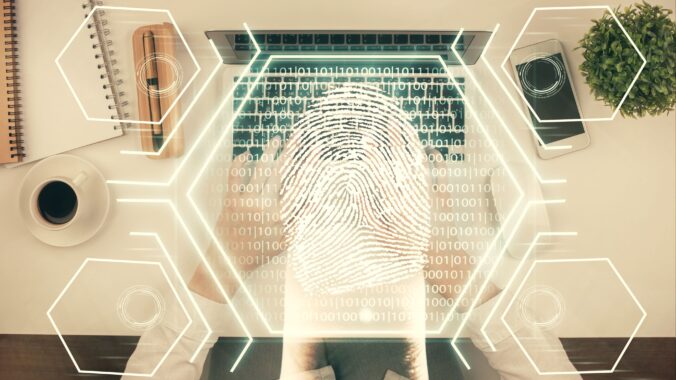Digital identities have had a significant impact on the way we interact, transact, and explore the world around us. However, there is still a limited understanding of what they are and the benefits they have.
In our latest piece for Computer Fraud & Security Magazine, we addressed some of the common misunderstandings around digital IDs, and outlined the potential for enhanced security, efficiency, and simplicity across the digital landscape. Here’s a flavour of some of the key takeaways…
- Anyone can use them – not just digital natives: Contrary to popular belief that digital identities are exclusively for the tech-savvy, they boast an incredibly user-friendly interface. From a smartphone’s digital wallet, credentials and identity data can be easily pre-loaded, activated via biometric authentication (e.g., facial recognition or fingerprint scanning), and presented as a QR code for swift verification.
- They’re highly secure and private: With robust biometric authentication and encryption layers, digital wallets provide multi-layered security, guarding your data from unauthorised access. Likewise, with passwords being an outdated form of authentication for online systems, biometrics provide a more resilient means of proving that you are who you say you are.
- They’re a frictionless and efficient way to prove who you are: The current identity verification landscape is highly fragmented, with various platforms, services and systems complicating user experience. Digital identities offer a seamless solution by centralising authentication, sparing people the hassle of retrieving many different forms of identification from both digital and physical sources.
- You only need to share the bare minimum of information: While your digital ID may securely host a wealth of information about you, it takes a more granular and controlled approach to data sharing. It will only reveal essential details necessary for specific transactions, and always based on the consent of the user, safeguarding your privacy.
- They have the potential to be used anywhere: Industries spanning finance, retail, travel, voting, real estate, law enforcement, and online services are embracing the concept of digital IDs. They all hold different forms of identity, from driving licences to boarding passes, qualifications, loyalty cards, and employment status. These all are very different use cases, but all would operate under the same principles.
By building a better understanding of digital IDs, we can accelerate their rollout and maximise their potential to enhance everyday processes.
Learn more here: https://www.thalesgroup.com/en/markets/digital-identity-and-security/digital-id



